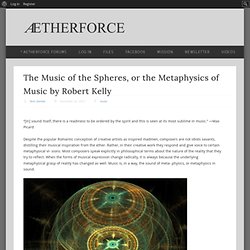

Garden. Infinite Immortal Bens. The Wrath of the Sea - Existential Comics. Philographics — Genis Carreras. Philographics Philographics is a series of posters that explain big ideas in simple shapes.

They are the result of combining the world of philosophy with graphic design. You can get the entire set of 95 designs as a book or a selection of them as posters. 1209-Infographie-8.jpg (JPEG Image, 2000 × 2398 pixels) - Scaled (41%) Servitude.pdf. 100 Diagrams That Changed the World.
Since the dawn of recorded history, we’ve been using visual depictions to map the Earth, order the heavens, make sense of time, dissect the human body, organize the natural world, perform music, and even concretize abstract concepts like consciousness and love. 100 Diagrams That Changed the World (public library) by investigative journalist and documentarian Scott Christianson chronicles the history of our evolving understanding of the world through humanity’s most groundbreaking sketches, illustrations, and drawings, ranging from cave paintings to The Rosetta Stone to Moses Harris’s color wheel to Tim Berners-Lee’s flowchart for a “mesh” information management system, the original blueprint for the world wide web.

It appears that no great diagram is solely authored by its creator. Most of those described here were the culmination of centuries of accumulated knowledge. Most arose from collaboration (and oftentimes in competition) with others. Christianson offers a definition: History of Philosophy without any gaps. Saturday Morning Breakfast Cereal.
Dead Philosophers in Heaven - The Music of the Spheres, or the Metaphysics of Music by Robert Kelly. “[In] sound itself, there is a readiness to be ordered by the spirit and this is seen at its most sublime in music.”

—Max Picard Despite the popular Romantic conception of creative artists as inspired madmen, composers are not idiots savants, distilling their musical inspiration from the ether. Rather, in their creative work they respond and give voice to certain metaphysical vi- sions. Most composers speak explicitly in philosophical terms about the nature of the reality that they try to reflect.
When the forms of musical expression change radically, it is always because the underlying metaphysical grasp of reality has changed as well. Music in the Western world was shaped by a shared conception of reality so pro- found that it endured for some twenty-five hundred years. Pythagoras of Samoa brought the ancient knowledge of Egypt to Greece and to all western civilization.
According to tradition, the harmonic structure of music was discovered by Pythagoras about the fifth century B.C. Suhrawardi. First published Wed Dec 26, 2007; substantive revision Wed Apr 4, 2012.

Nimispauci - Ugo Bratelli - Traductions de textes latins, grecs... Épistémologie. Un article de Wikipédia, l'encyclopédie libre.

L'épistémologie (du grec ancien ἐπιστήμη / epistếmê « connaissance, science » et λόγος / lógos « discours ») désigne soit le domaine de la philosophie des sciences qui étudie les sciences particulières, soit la théorie de la connaissance en général. Définition[modifier | modifier le code] L'épistémologie serait selon la « tradition philosophique francophone », une branche de la philosophie des sciences qui « étudie de manière critique la méthode scientifique, les formes logiques et modes d'inférence utilisés en science, de même que les principes, concepts fondamentaux, théories et résultats des diverses sciences, afin de déterminer leur origine logique, leur valeur et leur portée objective »[1]. Dans la tradition philosophique anglo-saxonne, l'épistémologie se confondrait avec la théorie de la connaissance, et ne porterait donc pas spécifiquement sur la connaissance scientifique. Qu’est ce que la connaissance (la question gnoséologique) ?
Existentialist Aesthetics. First published Fri Jun 26, 2009 Many of the philosophers commonly described as “existentialist” have made original and decisive contributions to aesthetic thinking.

In most cases, a substantial involvement in artistic practice (as novelists, playwrights or musicians) nourished their thinking on aesthetic experience. This is true already of two of the major philosophers who inspired 20th century existentialism: Søren Kierkegaard and Friedrich Nietzsche. Empedocles. Empedocles (/ɛmˈpɛdəkliːz/; Ancient Greek: Ἐμπεδοκλῆς; Empedoklēs; Ancient Greek: [empedoklɛ̂ːs]; c. 490 – 430 BC) was a Greek pre-Socratic philosopher and a citizen of Agrigentum, a Greek city in Sicily.

Empedocles' philosophy is best known for being the originator of the cosmogenic theory of the four Classical elements. He also proposed powers called Love and Strife which would act as forces to bring about the mixture and separation of the elements. Commentary on Wittgenstein's Philosophical Investigations. Shawver Commentary: This commentary in the pages of this website is not meant to replace your reading of Wittgenstein in the original.

For that, of course, you will need to acquire the book. This commentary is meant to give you a taste of Wittgentein, or, if you are really ready, to help you get started. Citeology - Projects - Autodesk Research. Update: We have submitted a Citeology paper to alt.CHI which you can download here.

Citeology looks at the relationship between research publications through their use of citations. 100 Books to Read in a Lifetime: Readers' Picks (5246 books) Internet Encyclopedia of Philosophy. Stanford Encyclopedia of Philosophy. The Discourse of Philosophy. Caute@lautre.net. Les auteurs et les textes.